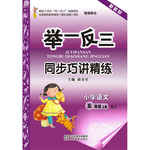题目内容
—You forgot your purse when you went out.
—Good heavens, ________.
A. so did IB. I did soC. so I didD. I so did
练习册系列答案
 举一反三同步巧讲精练系列答案
举一反三同步巧讲精练系列答案 口算与应用题卡系列答案
口算与应用题卡系列答案 名师点睛字词句段篇系列答案
名师点睛字词句段篇系列答案
相关题目
题目内容
—You forgot your purse when you went out.
—Good heavens, ________.
A. so did IB. I did soC. so I didD. I so did
 举一反三同步巧讲精练系列答案
举一反三同步巧讲精练系列答案 口算与应用题卡系列答案
口算与应用题卡系列答案 名师点睛字词句段篇系列答案
名师点睛字词句段篇系列答案